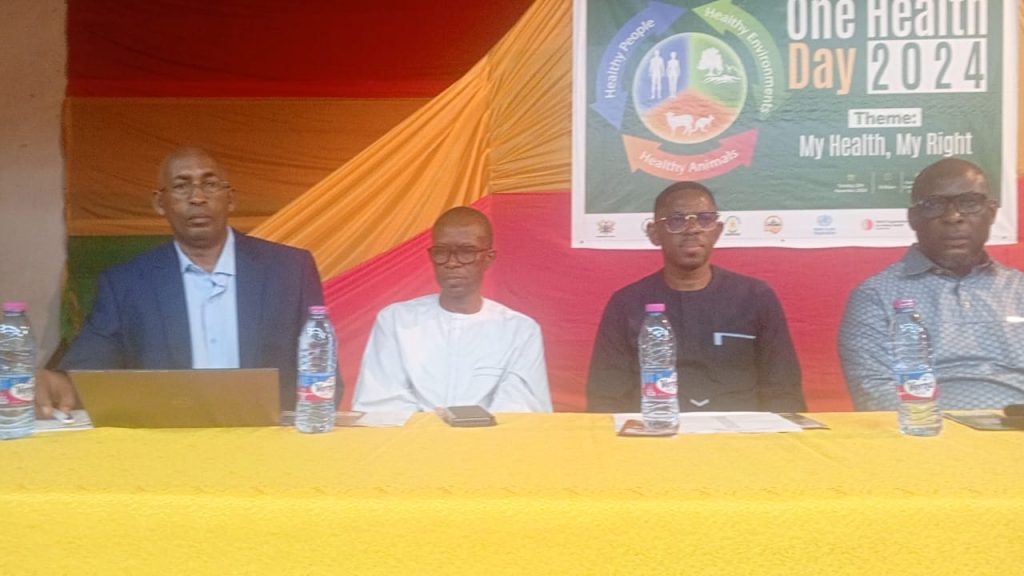|
Getting your Trinity Audio player ready...
|
Speakers at the commemoration of the 2024 International One Health Day, have advocated for the provision of complimentary rabies vaccine, and cross-sectorial cooperation to enhance health outcomes.
The principle of One Health promotes sustainable development by recognising the interconnectedness of ecosystems and health outcomes, ultimately leading to improved preparedness for pandemics and health crises.
By leveraging multifactorial alliances, One Health facilitates prompt responses to emerging health challenges and promotes equitable access to resources, thereby strengthening global health resilience.
The speakers, including representatives from the Veterinary Service, Ghana Health Service (GHS), Environmental Protection Agency (EPA), National Disaster Management Organisation (NADMO) among others, highlighted the urgent need for cost-free rabies vaccinations and cross-sectorial collaboration.
Under the theme: “My Health, My Right,” the event reiterated good health as an inherent entitlement for all living beings, encompassing human, animal, and environmental well-being.
The discussion aimed at mobilising resources and fostering partnerships among governments, NGOs, and communities to mitigate health risks, which persist as a significant public health issue.
Dr Benita Anderson, representing the Veterinary Service of Ghana, emphasised that collaboration was essential, not only for preventing zoonotic diseases, which could be transferred between animals and humans, but also for ensuring food security, environmental sustainability, and public health.
She recounted recent zoonotic diseases in Ghana such as Mpox, Marburg Disease, Lassa Fever, Rabies, and Avian Influenza, underscoring the crucial role of Veterinary Services as the authoritative body for animal health and food safety.
Looking ahead, she reiterated the commitment to the principles of One Health, advocating for increased investment in veterinary, public health, research, and education.
“Health, agriculture, and environmental sectors must collaborate to establish a sustainable and healthier world. The Veterinary Services in Ghana are pivotal to achieving these goals,” she stated.
Mr Godfred Saviour Azaglo, on behalf of the EPA, remarked that global health had faced unprecedented challenges, from the worldwide pandemic to the growing threat of climate change.
He simplified the concept that health was intricately linked with the well-being of ecosystems and coexisting animals, highlighting Ghana’s significant progress in promoting the One Health framework.
“As we look towards the future, the environment sector’s dedication to the One Health approach remains steadfast. We must persevere in fostering strong partnerships, sharing knowledge, and innovating to address the complex health challenges that lie ahead.
“I urge all stakeholders, governmental bodies, private sector collaborators, non-governmental organisations, and the public to cooperate harmoniously. Through such collective efforts, we can ensure a healthier and more resilient future for all,” he emphasised.
Dr Agnes Achiama Anane, the Acting Central Regional Director of GHS, mentioned a robust institutional collaboration with other sectors following the recent cholera outbreak, where the Environmental Health Departments at the Assemblies led investigations and implemented measures to address the situation.
She commended Ghana’s successful pandemic fund application this year, developed and formulated using a One Health approach with the animal sectors and CSOs playing a pivotal role, awaiting the implementation of the planned activities.
She acknowledged that although One Health in Ghana seemed to be operational, the lack of a One Health Policy had presented a challenge, urging members to support the finalisation of the document.
Source: GNA


